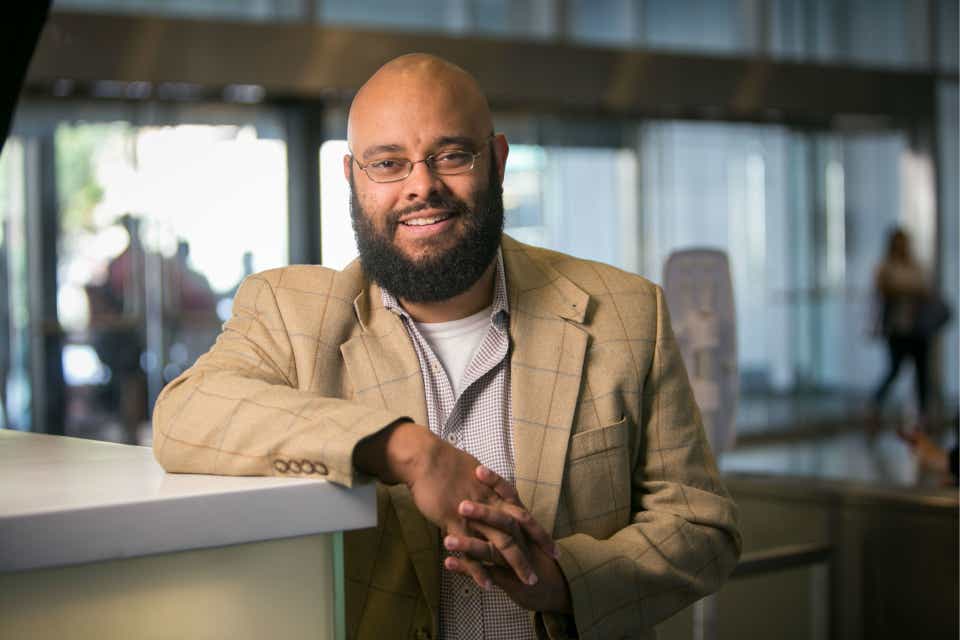In light of the recent fatal police shootings of Ma’Khia Bryant and Adam Toledo among others, I talked with Dr. Phillip Atiba Goff, co-founder and CEO of the Center for Policing Equity, about reforming law enforcement in the U.S. This included everything from why “Defund the Police” needs to be rebranded to the reasons why it’s so difficult to convict police officers of wrongdoing. Read on for a few highlights from our wide-ranging conversation.
“[In] most of the communities where policing is a problem…they’ve already defunded schools, they’ve defunded mental health, they’ve defunded substance use and homelessness resources. The only public good that gets any kind of money is the police.” Dr. Goff clarified that “defund the police” should be seen as a movement to “re-fund” other community programs that address underlying issues.
“80% of what most law enforcement are doing is not fighting crime. It’s doing the things the neighborhood needs.” In a recent piece for Time, Dr. Goff explained that only about 20% of police departments’ time is spent on investigating crimes and arresting suspects. The other 80% is spent responding to incidents stemming from mental illness, homelessness, substance abuse, and neighborhood squabbles. The key, Dr. Goff said, is to deploy police officers less often, “as opposed to asking them to show up and be EMTs and mental health responders and social workers and child welfare experts” in one.
“How many times did we fail her before Tuesday?” Rather than focusing on whether sixteen-year-old Ma’Khia Bryant “deserved” to die, Dr. Goff said, we should be looking at the many factors that led up to her threatening two other girls with a knife on Tuesday. “It’s just about having a kinder orientation to how we’re doing all of our public policy.”
“We have a nation that’s addicted to punishment.” Citing the killing of Eric Garner when he was being arrested for selling loose cigarettes in 2014, Dr. Goff pointed out the ridiculousness of arresting people for low-level crimes. “That is the least cost-efficient way we could possibly have to respond to that,” Dr. Goff said.
“If there wasn’t a video, we’re almost certainly not having this conversation.” On the rarity of police convictions, Dr. Goff highlighted how many factors had to come together for Derek Chauvin to be convicted of murdering George Floyd. As the original police report did not mention Chauvin’s kneeling on Floyd’s neck, a conviction would have been unlikely without the cell phone video from 17-year-old Darnella Frazier, the testimony of numerous Minneapolis police officers and the police chief, and the testimony of multiple medical examiners.
“We need national leadership on this because it is definitely a national problem…And part of the national leadership needs to be supporting local folks.” Dr. Goff said communities need to be empowered at the local level to address issues with their police departments, and the federal government can provide resources for them to do so.
“When you give yourself the space to imagine it…you come up with something really different.” Cities including Denver, Colorado, and Ithaca, New York, have reimagined their public safety departments. Denver’s 911 operators now dispatch a mental health clinician and a paramedic when appropriate rather than armed police officers. Ithaca’s new Department of Community Solutions and Public Safety is civilian-led and majority unarmed in order to avoid sending police officers to nonviolent situations.
“Go and be next to the life of someone doing the kind of work that you think is important.” Citing his father’s use of the phrase, “if you want to be a philosopher, go where philosophers go,” Dr. Goff said it’s not enough to read or talk about something, but to learn from someone firsthand how to emulate their work. “There’s so much good that needs doing that the first thing is do anything, anything at all.”









